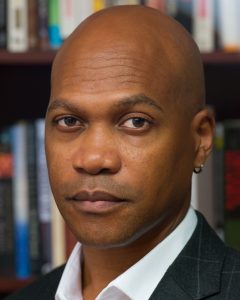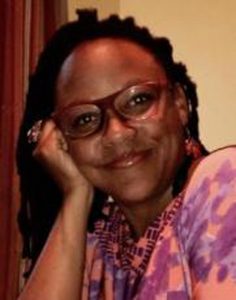
TUSCALOOSA, Ala. — Thomas Jefferson, third president of the U.S. and principal author of the Declaration of Independence, lived a life of conflicting dualities.
On one hand, he believed that “all men are created equal” and voiced that slavery was a detrimental practice. On the other hand, he owned more than 600 slaves in his lifetime.
On one hand, Jefferson thought that blacks lacked human emotions, that they were inferior to whites in body and mind and that free blacks were “pests in society,” according to a New York Times article, “The Monster of Monticello.”
On the other hand, it has been said that he deeply loved a black enslaved woman he owned named Sarah “Sally” Hemings. He fathered six of her children.
Jefferson’s controversial relationship with Hemings, and the paradox in his thinking that the relationship illustrates, raises the question: Could true love really exist between a white person in authority and a black subordinate?
That is the question that several panels of academics from across various disciplines and universities, including a school in France, will talk about at The University of Alabama English department’s “Black/White Intimacies: Reimagining History, the South, and the Western Hemisphere” symposium at Hotel Capstone from 8:45 a.m. to 8:30 p.m. April 21, and 8:45 a.m. to 2:45 p.m. April 22.
“There is a debate about whether or not people across racial lines, particularly black and white, could have sincere love relationships with each other in the 18th and 19th centuries,” said Dr. Cassander Smith, associate professor of English and one of the event’s three organizers.
“For example, Thomas Jefferson is the same guy saying black people were inferior, inhuman and unattractive, but then he has a relationship with Sally Hemings. Some people say this wasn’t a relationship but rape because of the power differential. But others romanticize it, like in a recent novel by Stephen O’Connor titled ‘Thomas Jefferson Dreams of Sally Hemings,’ which paints Jefferson as this passionate and compassionate lover.”

The symposium consists of three panels on the first day of the conference and two panels on the second day. Each panel will have three presenters who speak for 20 minutes each. After all speakers on a panel present, those in the audience will have 30 minutes to ask questions and share their thoughts.
In addition to the panels, the event features three keynote speakers who are well known in the fields of history, English, gender and race studies:
- E. Patrick Johnson from Northwestern University
- Michael Bibler from Louisiana State University
- Rebecca Wanzo from Washington University in St. Louis
Johnson will perform a dramatic interpretation and monologue that addresses black sexuality and gender intimacy in the South at 6:30 p.m. April 21 in Bryant-Jordan Hall.
The idea for the symposium came about when Smith, Dr. Trudier Harris, a distinguished research professor in English, and Dr. Andy Crank, an assistant professor of English, realized they had something in common.

“Dr. Harris was thinking about a book written by another one of our colleagues, Dr. Sharony Green in the history department,” Smith said. “Dr. Green’s book ‘Remember Me to Miss Louisa’ came out in 2015 and talks about relationships between blacks and whites during slavery. Also, at the same time, I was thinking about the O’Connor novel ‘Thomas Jefferson Dreams of Sally Hemings.’”
“Dr. Crank, a Southern studies expert, was working on a project on gender, race and class intimacies. Trudier noticed we were all talking about or working on a common theme, so she brought us all together.”
The symposium is free and open to the public. Registration for both days is at 8 a.m. on the days of the event. The full program for the symposium is available on the English department’s website. (https://english.ua.edu/life/symposium/2017)
Also, in conjunction with the symposium, on April 19 at 7:45 p.m., the student organization English Majors/Minors Association (EMMA) is hosting a free screening of the film “Hidden Figures” in room 301 of Morgan Hall.
The movie will be used as a springboard for a discussion on racial intimacy in the work place and anticipate the kinds of conversations that will unfold at the symposium later in the week.
Contact
Jamon Smith, media relations, jamon.smith@ua.edu, 205/348-4956
Source
Dr. Cassander Smith, clsmith17@ua.edu, 205/348-5065
